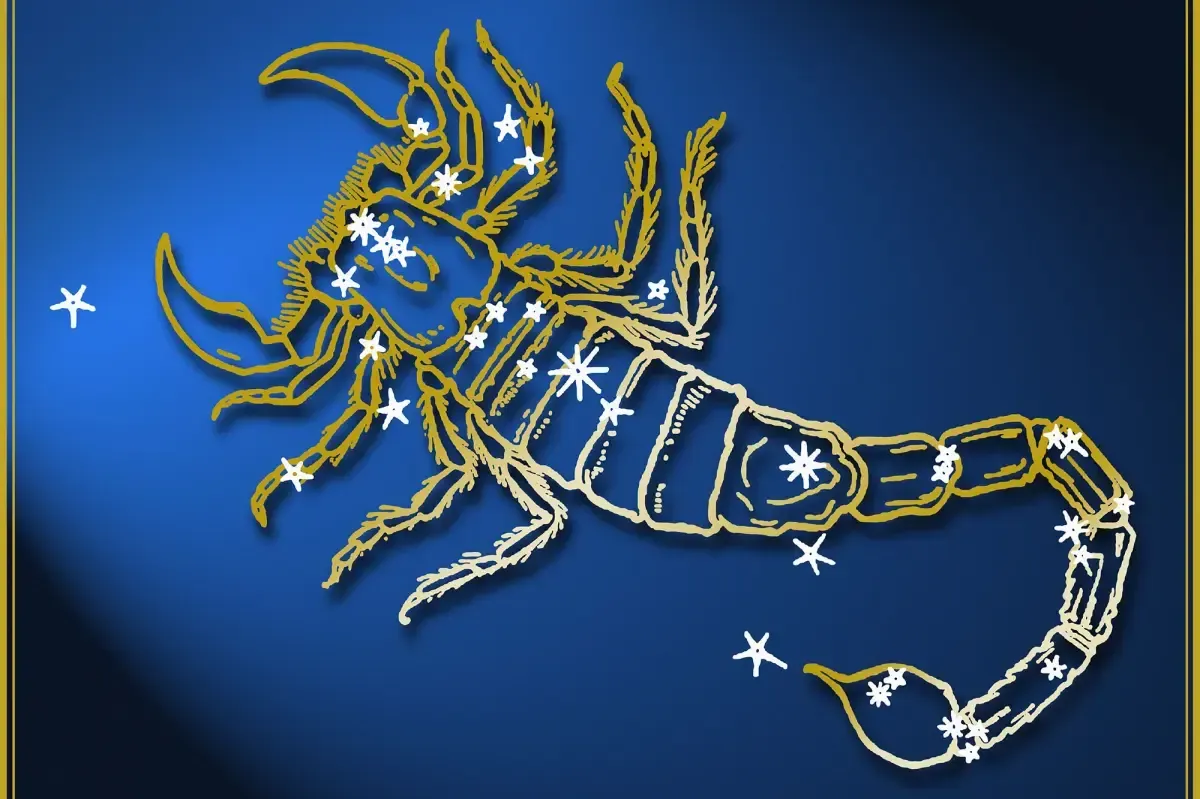7 Spiritual Meanings of Scorpion

Scorpions are small creatures with the power to instill fear. However, they also offer valuable lessons.
Historically, scorpions have represented various ideas and teachings across cultures. This article explores scorpion symbolism in different traditions and interprets the significance of encountering a scorpion.
Spiritual Meanings of Scorpion
The Scorpion Kings
In ancient Egypt, the scorpion holds notable significance. The king Scorpion I is recognized as the first ruler of Upper Egypt around 3,250 BC. Archeological findings indicate that Scorpion I claimed victories in battles. His tomb, along with symbolic graffiti, hints at his status.
A later figure, Scorpion II, influenced discussions among Egyptologists. They debate whether Scorpion II is the same individual as Narmer. The scorpion symbol might represent titles or names in the early Egyptian monarchy. Some speculate that the scorpion served as a royal protector during that era. Egypt’s Deathstalker scorpion, with its lethal sting, may also signify the power and danger inherent to kingship.

Scorpion Goddesses
Scorpions' symbolism extends to powerful goddesses in ancient Egypt. Serket, represented as a scorpion, helped neutralize harmful stings and bites. Hieroglyphics of her name illuminate this dual role, linking her to the essence of life and lethality.
Serket bore connections to fertility, magic, and medicine. Her strength was crucial in combating Apep, a snake demon, often depicted as being guarded by her. Another goddess, Hedetet, similarly depicted as a scorpion, cradled a child, signifying new life.
Beyond Egypt, several cultures recognized scorpion-related deities. The Mesopotamian goddess Ishara used the scorpion as a symbol of love and marriage. Both disease and healing were associated with her. In Aztec myth, Malinalxochitl governed scorpions, while in Hindu belief, Chelamma offers protection against their sting.
Scorpion Men
While primarily identified with goddesses, male representations also exist. The Akkadian Empire portrayed Scorpion Men with human limbs and heads. Tiamat created these beings, commissioning them as warriors against foes.
The Scorpion Men possessed the significant role of managing doors to Kurnugi, the underworld. Each morning, they opened the gates for Shamash, allowing daylight onto the earth. This function grants them remarkable influence in myth.
The Scorpio in the Stars
Scorpio's astrological association stems from mythology, linked with individuals born from October 20th to November 20th. Represented as a scorpion, this water sign embodies feminine energy. Traits attributed to Scorpios include loyalty, power, loyalty, and a touch of introspective wariness.
These individuals display analytical prowess, thriving in disciplines such as research or psychology. Their intertwining of mind and body understanding positions them as adept healers, making them suited for medical roles.

The Scorpion in Greek Mythology
Scorpio's celestial position connects with mythological narratives regarding Orion. In one account, Artemis, accompanied by Orion in hunts, ignited Apollo’s rage. In retaliation, the god sent a scorpion to eliminate Orion. This illustrates the repercussions of offending divine powers.
For Orion’s boast about hunting prowess, Apollo or Artemis send in a scorpion to restore balance. This myth marked the scorpion's victory, gifting its constellation significance.
Scorpions in Ancient Rome
The scorpion was similarly perceived in Ancient Rome, marked by fear and respect. This creature’s image adorned the shields of the Praetorian Guard, the emperor’s elite protectors. Additionally, a war machine named Scorpion was used during sieges, embodying its powerful stature.
Scorpions inspired fear and served as psychological tactics for Roman combatants. This dual perspective highlights the complexity of human interactions with the scorpion symbol.
Scorpions in Native American Tradition
Various Native American tribes honor scorpions in folklore. As symbols of danger and change, scorpions served as clan totems. One noteworthy story depicts a scorpion seeking a frog’s help to cross a river. Despite constraints, the scorpion’s inherent nature leads to its downfall, reflecting deeper moral lessons on innate tendencies.

Recognizing the Scorpion as a Spirit Animal
In some cultures, spirit animals act as advice canes. If the scorpion appears as your spirit animal, it may symbolize guidance. If facing uncertain decisions, its manifestation could provide insights or new perspectives.
Recurring encounters with scorpions can signal essential spiritual meanings within your life. Reflecting on these events underscores the need for a deeper understanding of personal associations with the scorpion symbolism.
Spiritual Meanings of Scorpion
Scorpions symbolize more than danger — they associate with healing and transformation as well. When encountering a scorpion, consider its personal meaning. Examine your experiences and the surrounding environment.
Each significance, from imminent change to environmental hazards, offers a tailored lesson. Remember the characteristics of patience and caution represented by scorpions, encouraging careful observation before acting.
The varied symbolism of scorpions illustrates their essential role in human beliefs over millennia. These enigmatic creatures contribute diverse messages about the balance of life’s dangers and the potential for healing and change.



















